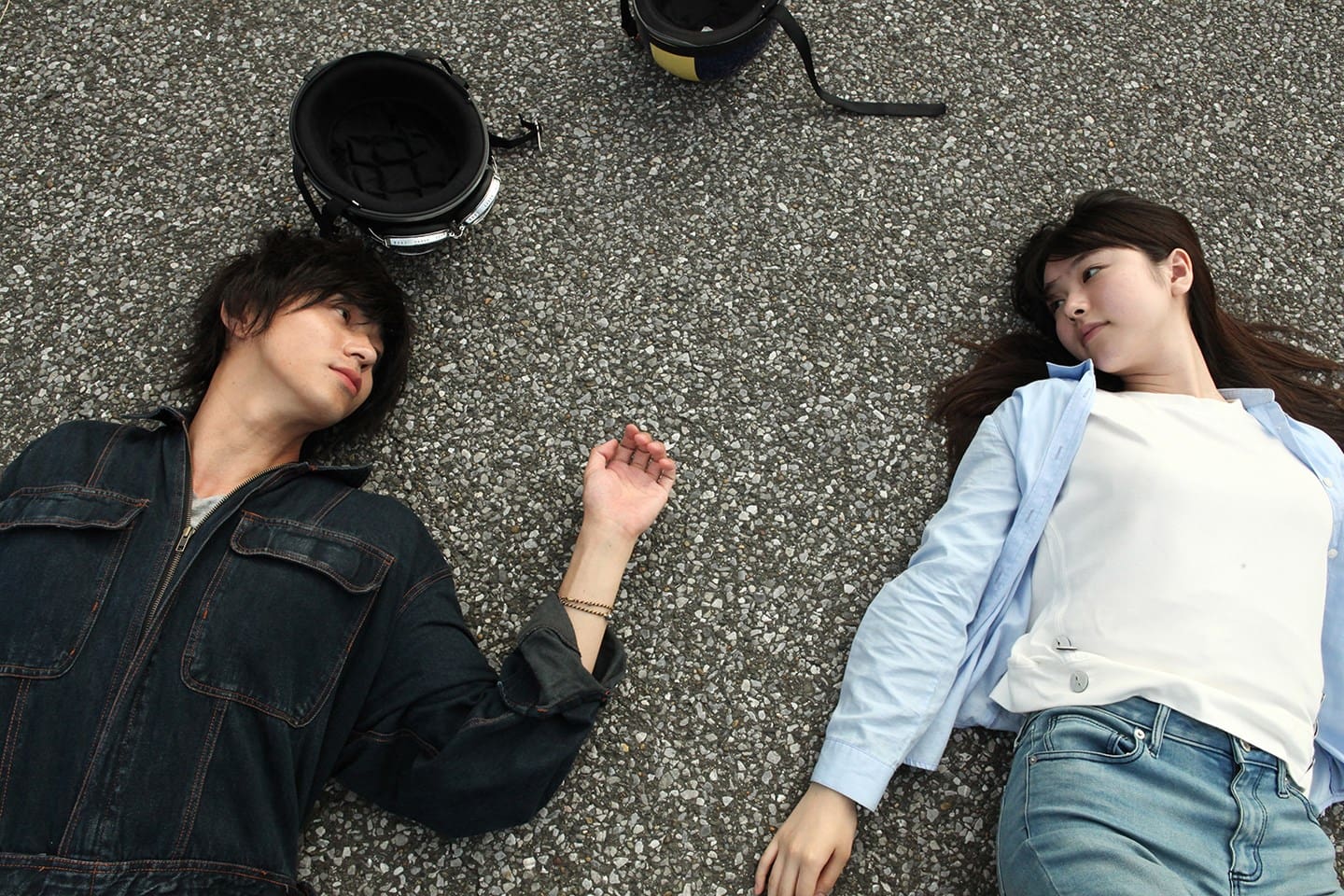
When we meet Asako (Erika Karata), she is a young woman in the midst of her first love. The object of her affection is Baku (Masahiro Higashide), a free-spirited loner who spends time with Asako but doesn’t ever seem all that infatuated with her. But that doesn’t bother her – even as her friends, and the audience, brace for the bitter, inevitable breakup.
The film’s story really kicks into high-gear after the first act, when the story of first love comes to a close. After a time-jump, Asako is a fully-grown woman working in a big city, dating a nice man who wants to marry her, and seemingly over her ex. But things get weird when she has a chance encounter with an up-and-coming model named Ryôyel – who looks eerily similar to Baku. And suddenly, the whole movie has changed.
And that’s Asako I + II, a creative new Japanese drama that somehow manages to work as a quirky romantic comedy and a thoughtful meditation on relationships at the same time. As this movie moves through its story and changes its focus, it becomes progressively more serious, sad, and, frankly, entertaining. The movie always stands out, and completely earns every tonal change and sharp turn in the script.
At its core is, of course, a very high-concept premise: what if your first love reentered your life, but apparently as someone else? And the film certainly has a lot of fun exploring that question. This movie is funny, finding the humor in dating norms and relationships without ever feeling too over the top. Erika Katata, it should be noted, sells every bit. She’s funny, yes, but also has that rare movie star quality that makes her a perfect surrogate for even the most cynical audience member. There is a likability to her that feels reminiscent of Drew Barrymore or Meg Ryan, and she is a huge part of why the movie succeeds.
But there is, obviously, a deeper theme behind that high-concept: do we ever fully move on from our first love? Asako I + II takes a serious turn in its final third that doesn’t seem immediately apparent as it plays with rom-com tropes. Honestly, it’s hard to imagine a romantic comedy from Hollywood going in the same direction. But that’s part of what helps this film stand out. The movie’s final act explores the concepts of maturity and compromise in relationships in a way that feels shockingly realistic for a movie that is centered on an inherently silly premise. It’s a risk, and it does rely on us expanding our sense of disbelief ever so slightly. But it mostly works.
While romantic comedies are exercises in escapism, Asako I + II seems dedicated to making audiences think. It lures you in with an intriguing romance, and then uses its fun premise as a Trojan horse for a genuinely thoughtful exploration of romances. By the end of the film, you may be thinking about lost loves and your own relationship baggage a bit too much – but at least you’ll have fun doing it!
Rating: 7/10

